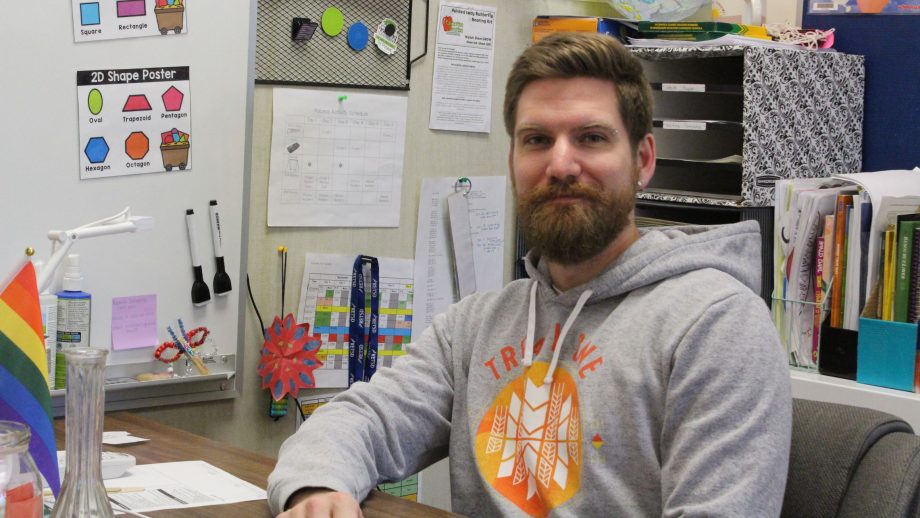It with a sense of sadness and loss that we announce the passing of Holocaust survivor and Honorary Degree recipient Philip Weiss at the age of 86 on Wednesday, September 3, 2008. His funeral took place today at Shaarey Zedek Synagogue.
Weiss received an honorary Doctor of Laws degree from The University of Winnipeg in 2003 for his life-long work in educating young people about the Holocaust. He lectured extensively in high schools and universities throughout the province, telling listeners his personal Holocaust story.
Weiss’s life in Drohobych, Poland was altered irrevocably with Hitler’s rise to power. Following the German invasion in 1941, the Nazis herded three million Polish Jews behind ghetto walls. When Weiss’s ghetto was destroyed in 1943, Weiss and other Jewish men were sent to labour camps, including Plaszow, the camp depicted in Schindler’s List. From there he was transferred to the Mauthausen concentration camp. Knowing he would not survive more than a week in the torturous stone quarry, he offered his services to the Germans as a technician and was transferred to a nearby plane factory.
“I always maintained a vision of the world past the Holocaust, and that is what kept me going,” Weiss once said.
He was liberated on May 5, 1945. Miraculously, his mother, father, brother and sister all survived – a rarity among Holocaust survivors. The family immigrated to Winnipeg, where he eventually opened Philip Weiss Limited, a furniture design and manufacturing business. In 2002, after a successful career and many awards for innovative design, he closed the business and retired from his duties as president.
He did not, however, retire from his duties as an ambassador of goodwill. Weiss provided free screenings of Schindler’s List for thousands of children – earning a special citation from Steven Spielberg – and he continued to provide financial assistance to students participating in the Asper Foundation Holocaust and Human Rights program, which sends young people to the Holocaust Museum in Washington. Along with his late wife, Weiss established the Philip and Gertrude Weiss Endowment, which recognizes individuals and organizations engaged in Holocaust education as well as those who strive to eliminate racism and religious discrimination. In 1994, the Shaarey Zedek Medical Centre in Jerusalem honoured him with the Humanitarian Award recognizing exemplary citizenship. He was recognized once again in 1998, when he received the Canadian Jewish Congress Award as one of 50 Canadian Holocaust survivors who have greatly contributed to the betterment of Canadian Society.
Weiss is remembered as a rare, courageous and compassionate individual who exhibited the highest standards of the community. He was a man of dignity, a scholar, a philanthropist and, in every way, a fine person.
A tribute from David G. Burley
The news of Philip Weiss’s death saddened me. I was not surprised, because I had known him long enough to see age weigh upon him—and to marvel that he could bear the years and their history with such grace.
Our relations had not been personal, but were formal. Among Dr. Weiss’s community engagements was his generous endowment of two awards for students in History at The University of Winnipeg, one for the study of the Holocaust and another for the study of historical issues in human justice. As Chair of the History Department for a time, I had the good fortune to meet with Dr. Weiss every year when the Weiss Prizes, along with other awards for students in History, were celebrated. Philip Weiss contributed financially to a reception for all students of distinction in History and my pleasure was to offer him a glass of red wine on those occasions and to talk quietly with him about the importance of what he was supporting. I remember telling him about my tourist-visit to Mauthausen, where he had for a time been. I listened to him describe how he had not long before returned from a visit to the camp and, despite a badly injured leg, had walked the steep steps of the quarry, just as weakened inmates had been forced to do a half century before. He appreciated, I hope, the pain of my inability to empathize with his first and later experiences.
Philip Weiss told his story on several occasions to students in History at the University of Winnipeg. And they listened. Perhaps more than other awards that students earned for excellence in their studies, the Weiss Prizes provoked reflection on the meaning of recognition. Some students felt undeserving of the distinction of those awards: how could their work, in libraries, archives, and classrooms, ever explain the atrocities against humanity? I think that that was what Philip Weiss wanted us to struggle with. A gentle, but firm man, he hoped that we might strive to learn and progress to appreciate the terror that we might not understand—and to know that we must never permit it to recur.
David G. Burley
History Department
University of Winnipeg




